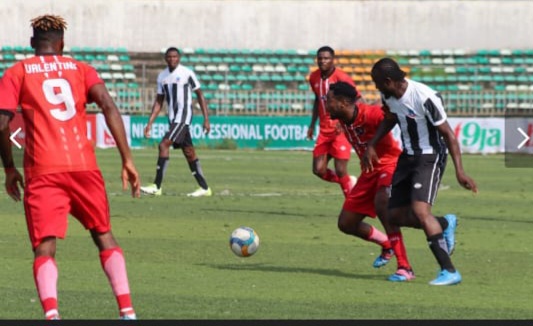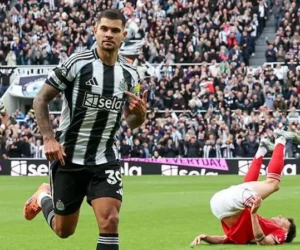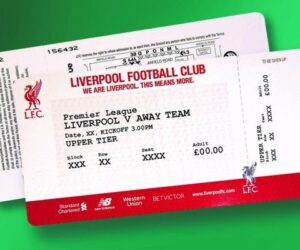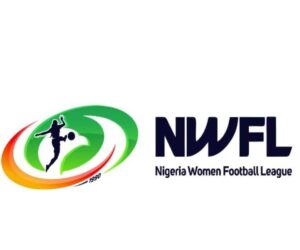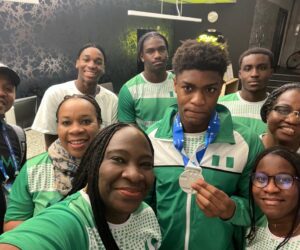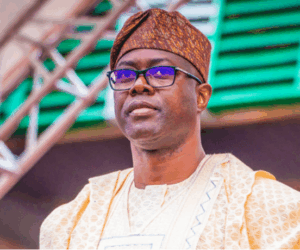By Vivian Ahanmisi
Nigeria’s domestic football league is at a defining moment, with stakeholders demanding urgent reforms to revive fan interest, restore credibility and align with global football best practices.
The stakeholders spoke on Sunday in Lagos with the News Agency of Nigeria (NAN).
They argue that without stronger structures, sustainable funding and improved visibility, the Nigeria Premier Football League (NPFL) risks further decline, undermining local football and its capacity to compete internationally.
Poor infrastructure, inconsistent calendars, weak sponsorship, inadequate marketing and poor officiating were repeatedly identified as obstacles preventing the NPFL from attracting fans and keeping players within the country.
Abdulrahman Gbadamosi of Sebioba Football Club, Ibadan, emphasised aligning the calendar with international standards. He said this would enhance player development and improve club performances in continental competitions.
“Our calendar must match international schedules. When we run properly, our players will compete better in Africa and our clubs will prepare more effectively for tournaments,” he explained.
Gbadamosi argued for professionalism and accountability. “We need to run our league like a business. Clubs should be professionalised, and players must enjoy proper welfare. That improves overall quality.”
He added: “When the quality improves, fans will naturally return to the stadium. With proper reforms, the NPFL can become one of Africa’s most attractive products.”
According to him, technology is central to growth. “Live streaming, television rights and social media engagement are key. If fans cannot access games easily, they quickly lose interest,” he warned.
He said visibility encourages investment. “When fans can watch consistently, sponsors will arrive because they see numbers. Accessibility, excitement and consistency drive sponsorship and revenue,” he stressed.
Citing models abroad, he said: “The English Premier League, La Liga and South Africa’s PSL prove that structure, marketing and accountability attract massive followership. Nigeria has similar potential.”
On stadium attendance, Gbadamosi urged improved security, family-friendly match-day experiences and affordable tickets.
“Fans want comfort, safety and entertainment. Music, food courts and side attractions make games memorable,” he suggested.
He also appealed to corporate organisations. “Sponsorship is vital. Strong financial backing enhances branding, recruitment and competitiveness.
“With infrastructure upgrades and promotion, the league could regain its past glory,” he said.
Similarly, a football analyst, Monday Ahanmisi, stressed safety as the number one issue.
“When fans feel safe from harassment, violence or poor crowd control, they will return. Security must be paramount,” he argued.
He advocated affordable ticketing. “Families need encouragement. Discounted packages and reasonably priced tickets will boost turnout, particularly when matched with quality football and engaging match-day activities,” he added.
Ahanmisi also emphasised entertainment. “Stadia should not only be about 90 minutes. Pre-match events, half-time shows, music and food courts make games exciting for different age groups,” he said.
According to him, visibility is equally important. “When matches are promoted across television, radio and social media, anticipation builds. Young people then identify with local clubs and attend in large numbers,” he said.
He further urged facility upgrades. “Modern stadia must have clean restrooms, comfortable seating and digital ticketing. Match-days must be family-friendly to rebuild trust and attract new fans,” Ahanmisi explained.
Sports editor, Christian Okpara, traced problems to inadequate funding. “When players are poorly paid, clubs cannot attract or retain top talent. That’s why many seek opportunities in other African leagues,” he said.
He offered examples. “In Tanzania, some players earn 3,000 dollars monthly. Even 1,000 dollars abroad outweighs what Nigerian clubs pay. Naturally, talented players leave,” Okpara explained.
The effect, he said, is evident. “In five years, the farthest Nigerian clubs have gone in CAF competitions is the quarter-finals. Without quality players, success is impossible,” he noted.
Okpara recalled the 1980s and 1990s when stadia overflowed with fans. “Back then, people came to see stars. Now, most Nigerians cannot identify NPFL players,” he lamented.
He criticised the culture within supporters’ clubs. “In Europe, fans sustain clubs through tickets. Here, many expect to be paid and transported, leaving clubs dependent on state governors,” he said.
However, Okpara praised recent reforms. “The club licensing programme is vital. If clubs restructure, list publicly and attract investors, fortunes will improve. But political resistance often blocks such changes,” he explained.
Another football analyst, Monday Izegagbe, urged the NPFL to benchmark globally.
“The league must command respect beyond Nigeria. Improving competitiveness and quality will naturally bring back fans in large numbers,” he said.
He stressed facilities as essential. “Fans must feel safe, comfortable and entertained. Well-maintained infrastructure is not a luxury but a necessity for any league that wants growth,” Izegagbe emphasised.
According to him, international partnerships would strengthen the NPFL.
“Collaboration with European or South American clubs can open doors for players, coaches and commercial ventures while raising the league’s brand value,” he explained.
He further highlighted digital engagement. “Today’s fan is digital. If the NPFL ignores online platforms, it risks losing an entire generation of supporters,” Izegagbe cautioned.
He proposed innovative strategies. “Virtual tours, fantasy leagues and interactive sessions sustain fan loyalty.
“Using stadiums for community programmes reinforces clubs’ social responsibility and strengthens community ties,” he suggested.
Izegagbe, however, expressed cautious optimism. “With deliberate investment in infrastructure, digital innovation and grassroots development, the NPFL can secure international recognition and regain pride of place among Nigerians,” he said.
In spite of challenges, analysts agreed the NPFL retains enormous potential. It has produced stars for Europe and the Super Eagles, yet continues to struggle with domestic structures and dwindling followership.
Stakeholders agreed that the league’s revival depends on firm leadership.
Strong governance, consistent scheduling, fair officiating and transparent commercial frameworks are critical if Nigeria hopes to restore domestic football’s lost glory.
Ultimately, the consensus is that Nigeria already has abundant talent. What is missing is structure. If addressed, the NPFL could again inspire pride and continental dominance. (NAN) (www.nannews.ng)
Edited by Kamal Tayo Oropo

